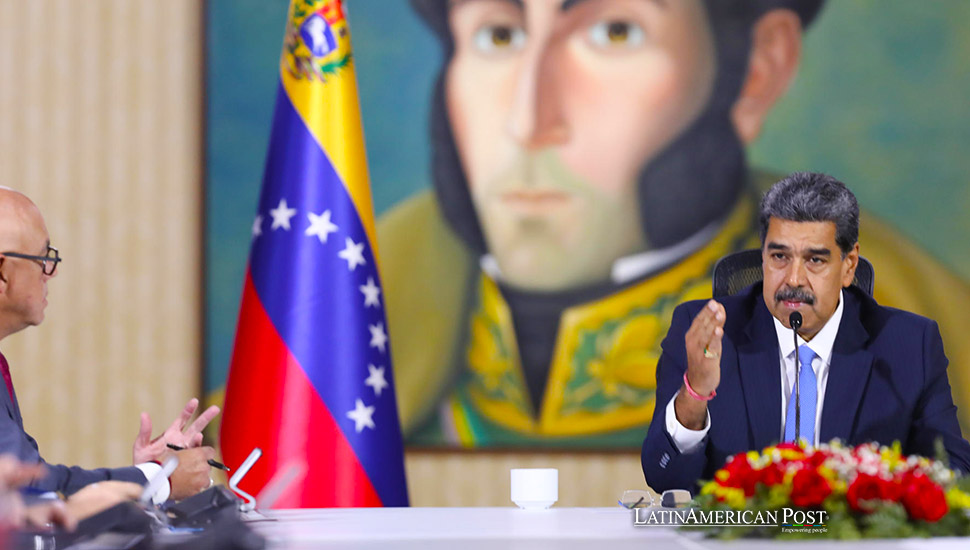U.S. Denies Amnesty Offer to Venezuela’s Maduro Post-Election

The White House denies offering Venezuelan President Nicolas Maduro amnesty to avoid U.S. prosecution in exchange for stepping down following his controversial July 28 election victory. Despite rumors, no such deal has been proposed since the election.
In the wake of Venezuela’s contentious July 28 election, speculation swirled around whether the United States had offered President Nicolas Maduro amnesty to relinquish power. The election, which saw Maduro declared the victor with 51% of the vote, remains controversial, as the country’s electoral authority has yet to release the detailed voting tallies.
This uncertainty, coupled with Venezuela’s deep-seated political tensions, has led to widespread rumors and reports of secret negotiations between the U.S. government and Maduro’s administration. On Sunday, The Wall Street Journal reported that the U.S. had engaged in covert discussions with Maduro, allegedly proposing an amnesty deal to shield him from criminal prosecution in the United States in return for his stepping down.
However, the White House swiftly addressed these claims the following day. During a briefing, White House spokesperson Karine Jean-Pierre clarified that no such offer had been made since the election. “Since the July 28 elections, we have not made any specific offers of amnesty to Maduro or others,” Jean-Pierre stated, firmly quashing the rumors. “What I can speak to is, since the election, we have just not made that type of offer.”
A History of U.S.-Venezuela Relations
The relationship between the United States and Venezuela has been fraught with tension, mainly since Nicolas Maduro assumed office in 2013 following the death of his predecessor, Hugo Chávez. Under Maduro’s leadership, Venezuela has faced severe economic challenges, widespread human rights abuses, and a deepening political crisis. The U.S. government has consistently opposed Maduro’s rule, recognizing opposition leader Juan Guaidó as Venezuela’s interim president since 2019.
U.S. sanctions have been a vital tool in the effort to pressure Maduro’s government, targeting the country’s oil sector, financial institutions, and top officials. These sanctions, coupled with Venezuela’s economic mismanagement, have contributed to a severe humanitarian crisis, with millions of Venezuelans fleeing the country in search of better living conditions.
The idea of offering Maduro amnesty in exchange for stepping down has been floated as a potential solution to the political stalemate. However, such an offer would be highly controversial, both within Venezuela and internationally, as it would likely be seen as a compromise on holding Maduro accountable for alleged crimes.
The Aftermath of the July 28 Election
Maduro’s recent electoral victory has done little to quell the ongoing unrest in Venezuela. His win, announced by the country’s electoral authority, has been met with skepticism domestically and abroad. The lack of transparency in the election process, particularly the delay in releasing voting tallies, has fueled accusations of fraud and manipulation.
Despite these allegations, Maduro maintains a tight grip on power, backed by critical military figures and loyalists within the government. The opposition, weakened by years of infighting and repression, has struggled to present a united front capable of challenging Maduro’s rule. This has left the country in a political deadlock, with little hope for a resolution soon.
The international community, including the United States, remains deeply concerned about the situation in Venezuela. The U.S. has called for free and fair elections in the country and condemned Maduro’s government’s actions. However, how to effectively support the Venezuelan people while avoiding further escalation of the crisis remains a challenging dilemma for policymakers in Washington.
The Path Forward for U.S.-Venezuela Relations
As the Biden administration navigates its approach to Venezuela, the question of whether to engage in dialogue with Maduro’s government continues to be contentious. While some argue that negotiations could pave the way for a peaceful transition of power, others fear that any form of concession, such as an amnesty offer, could embolden Maduro and undermine efforts to hold him accountable.
The White House’s stance remains clear: no amnesty offers have been made since the July 28 election, and any future actions will be carefully considered within the broader context of U.S. foreign policy and human rights principles.
Also read: Venezuela’s 25-Year Crisis Explained from Prosperity to Turmoil
As Venezuela’s political and economic crises continue, the international community, led by the United States, faces the daunting task of finding a viable solution that supports the Venezuelan people while promoting democratic values and the rule of law. Whether through continued pressure, diplomatic engagement, or a combination of both, the road ahead will require careful navigation to ensure that any progress made is sustainable and just.





